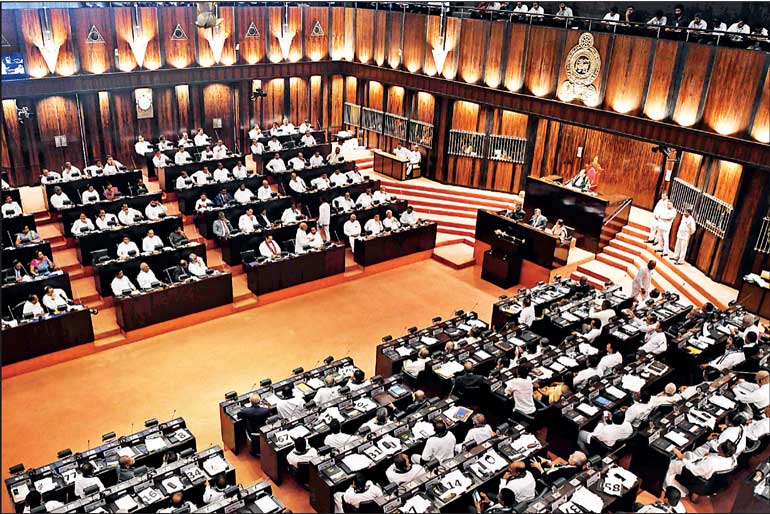Tuesday Feb 17, 2026
Tuesday Feb 17, 2026
Friday, 9 September 2022 00:18 - - {{hitsCtrl.values.hits}}

If one reads the legislation associated with these entities and their management, it is clear that the buck stops with the Minister, and the management of the Boards or the head of a department, is primarily his responsibility
 Everyone is talking about the need to restructure public entities as an urgent need. However, the first step in ‘restructuring’ is to introduce management discipline and political accountability. Without this, it is like saying, let us repair our vehicle without changing the driver who is totally undependable! Who is at the end of the day responsible for the waste, corruption and malpractices? Who makes the decision finally for everything which happens in the entity? The Minister! Of course.
Everyone is talking about the need to restructure public entities as an urgent need. However, the first step in ‘restructuring’ is to introduce management discipline and political accountability. Without this, it is like saying, let us repair our vehicle without changing the driver who is totally undependable! Who is at the end of the day responsible for the waste, corruption and malpractices? Who makes the decision finally for everything which happens in the entity? The Minister! Of course.
If one reads the legislation associated with these entities and their management, it is clear that the buck stops with the Minister, and the management of the Boards or the head of a department, is primarily his responsibility.
What is the point of attempting to restructure public departments and corporations without first eradicating all avenues for political interference with proper management? The public departments report to the secretaries of the ministries who must be held accountable for following the relevant administrative and financial rules and it should not be an excuse to claim that a minister or the president gave contrary instructions. The boards of corporations should have the same liabilities that boards of companies have to shareholders.
The whole problem if one analyses the irregularities that take place, is that political considerations and the arbitrariness of ministers interfere with due management, especially in relation to recruitment, promotions and rewards. I do not need to labour the point and it has been talked of so often with a sense of despair!
Dr. A.R.B. Amerasinghe, who was at one time the General Manager of the Insurance Corporation published a book entitled Public corporations in Sri Lanka in 1971 and the author cites the George Rajapaksa Cabinet Sub-committee and the Finance Minister’s recommendations for change. The provisions of the Finance Act No. 38 of 1971 have also been incorporated by him in his book, which was for many years used to train public officers.
The Rajapaksa Cabinet Sub-Committee Report on Public Corporations says: “By and large, recruitment is haphazard, promotions go largely by favour and transfers are made often under various pressures. There is no set grievance procedure and the climate is ripe for poor morale”. The Government was more than aware all these years that the model was deficient but the public institutions helped politicians to secure employment for their henchmen whether vacancies existed or not and whether they had qualifications, so when they downsize, who will be sacrificed!
Dr. Amerasinghe says: “Ministerial direction may be exercised not only openly in the ways mentioned in the Acts of Incorporation as formal, official directives, but they may be given informally and covertly. Interference in this clandestine way has been so frequent that there are many who feel that it is perhaps justifiable to conclude that in Ceylon, the move to vest enterprises in the control of autonomous institutions has been a comparative failure.” He clearly points to two inhibiting factors – firstly interference by Ministers and secondly the poor quality of the Boards.
So before you restructure the organisations we should have a proper code of conduct for Ministers and a clear responsibility for implementing the code. Interference with the management of departments, public companies and corporations should be forbidden. The Minister should be allowed to interfere only when the management is not in accordance with proper management principles. In such instances he should be responsible to Parliament and should bring it to the notice of Parliament that there has been an internal failure in management which has resulted in his intervention.
The next requirement would be to make sure that the Boards consist of those professionally suitable and persons of integrity to sit on them. People with conflicts of interests should not be on Boards or in public service. Conflict of interests I would define to include those with political leanings and relationships with the Minister.
After these two failures mentioned are duly addressed, leave it to the properly constituted Boards and Secretaries of Ministries to carry out the restructuring on equitable principles which are conscious of the social issues involved.